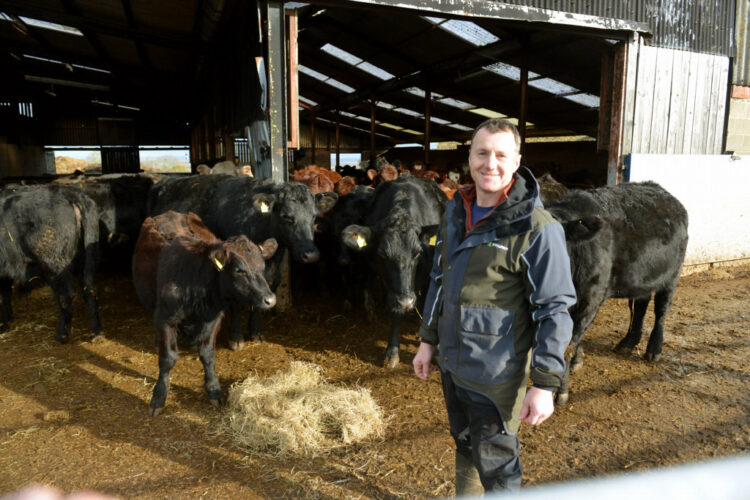A BRIGNALL farmer’s organic method of land management is being featured in a new film by a nature conservation group.
Simon Hare stopped using artificial fertilisers and weedkillers, and began swapping his dairy herd for beef, about 15 years ago. The change was inspired by his interest in food.
He said: “You are supposed to put on a suit, a face shield, gloves and everything when you spray and this [chemical] is what will be eaten by you. It doesn’t make sense so that is why I wanted to go organic.”
Since then, the soil at Mr Hare’s Tree House Farm has improved and an abundance of wildlife has flourished.
This attracted interest from Darlington Friends of the Earth who commissioned Growing Rich With Nature: A Farmer’s Success Story, a documentary filmed over a year.
Mr Hare’s conversion began in 2010 when he started introducing a beef suckler herd and by 2016 he ceased milking.
He added: “One of the reasons I wanted to go organic and do suckler beef, was to cut out a lot of inputs of fertilisers. I was buying in a lot of feed for the cows. It was cutting those out to make the business more sustainable and less exposed to changes in the price of feed.”
His focus switched to grass management because he believed this was the cheapest and best feed for his cattle.
He also reduced the time the animals are housed over winter from about five months to three-and-half months, with an aim to reduce further. He has continued a programme of planting hedges and trees, started by his father John, to create shelter belts. Theses have had the added benefit of providing habitats for birds, wildlife and invertebrates.
“I suppose now I am farming more in line with nature,” said Mr Hare. “By having more birds and wildlife, that improves the health of the cows and the quality of their meat. Everything works as a whole.
“I let the grass grow so there is thicker grass and more habitat for birds, moles and voles. Now I’ve got more barn owls as well because their prey lives in the growth of the grass.”
More interesting is the composition of the grass, which previously had to be reseeded with a mix of rye grass and clover regularly.
Mr Hare said: “The natural native grasses are starting to come back through, such as Cocksfoot, Timothy and a few other varieties. It has taken quite a number of years, but it is through management of the grazing that the natural seedbank that is in the soil is starting to come back.”
He noted that the native grass have deeper root systems and are more tolerant of the local climate, improving the quality of soil. It has also improved water infiltration, making the soil more resilient against drought and flooding.
Mr Hare said: “The way I manage the grazing of the grass is by the cows. it is mimicking what happened in the past, having one big [wild] herd moving around, and then areas get a long rest for a couple of months before they come back to allow other species to come through.
“If you took all grazing away it would all go to pot because you need the cattle to keep the green growing grass there. If it is managed in the right way, that benefits the environment by taking the CO2 out of the atmosphere.”
Since the improvements, tests have shown that meat produced at Tree House Farm has higher levels of healthy omega three fatty acids than non-organic farm animals.
The film Growing Rich with Nature had its first screening last night (Thursday) at Darlington, followed by a discussion with Mr Hare and others involved in regenerative farming.
While it focuses on Mr Hare’s farming methods, it is framed by other professionals’ perspectives on regenerative farming.
Experts include Allan Savory (creator of Holistic Management), Christopher Cooke (field professional in holistic management), Gillian Butler (senior lecturer in animal science) and Mark Hopper (technical supervisor at CSX Carbon).






